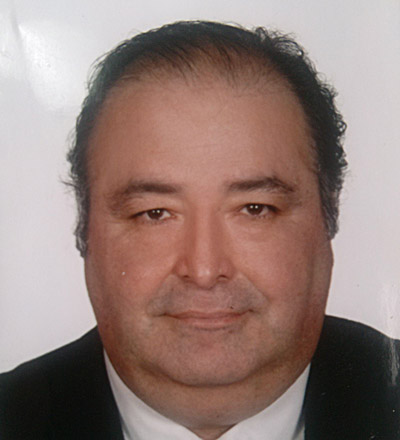 Ethem Geçim is ESCP President and Professor of Surgery at Ankara University Medical School in Turkey.
Ethem Geçim is ESCP President and Professor of Surgery at Ankara University Medical School in Turkey.
Name: I. Ethem Geçim
Current Position and Hospital: Professor of Surgery, Ankara University Medical School, Ankara, Turkey
ESCP Executive Position: ESCP President
Main clinical and research interests: Screening, inflammatory bowel disease, anal fistula, pilonidal disease
Twitter handle: @IEGecim
What made you want to specialise in colorectal surgery?
When I was about to finish my training in general surgery, Ankara Medical School Department of Surgery, decided to establish subspecialty branch units. At this point, as a young surgeon, I was not very set in my ambitions about what subspecialty I wanted to pursue but I was offered a junior consultant position in the newly established colorectal unit and I really enjoyed it. Every day there was something new.
What is the best part of the job?
Having problems with the bowels is very difficult for the patients. They really suffer. Helping them is the best part.
How long have you been involved in ESCP and what made you want to become involved?
I have been involved in ESCP for the last 15 years. EBSQ was established in 1998 and I was one of the first in Turkey to take the Coloproctology board certificate and have encouraged others to do so ever since. After this I was elected as the ESCP National representative for Turkey. I became involved for two reasons. The first is to encourage Eastern European surgeons to learn about ESCP and increase their interest in the society. The second is to inform ESCP members about the eastern region. This was a two way job and I think, though we have made progress, there is still some distance to go.
What do you value most about being involved in ESCP?
The establishment of UEMS goes back to 1950s in Europe. This vision of the future resulted in the elaboration of common general criteria, applicable to all medical specialists wishing to move within the member countries of the EU. The ESCP was formed in 2005 from a merger of other organizations in the field of Coloproctology. ESCP brought training, standards and accreditation to the field and working closely with the UEMS Division of Coloproctology. I believe this project of ensuring consistent and high standards in surgery across Europe is the most valuable aspect of ESCP.
Tell us your best ESCP conference anecdote?
When I arrived at Napoli airport from Sorrento after the 2010 ESCP conference, I realised that I had left my computer at the hotel. I phoned the hotel reception and they put my computer in a taxi and I managed to collect it from the driver in the airport just before my flight. I still send cards to the driver.
What would your one bit of advice for younger surgeons starting their career in colorectal surgery be?
The research and training are very important but never forget that patients come first!